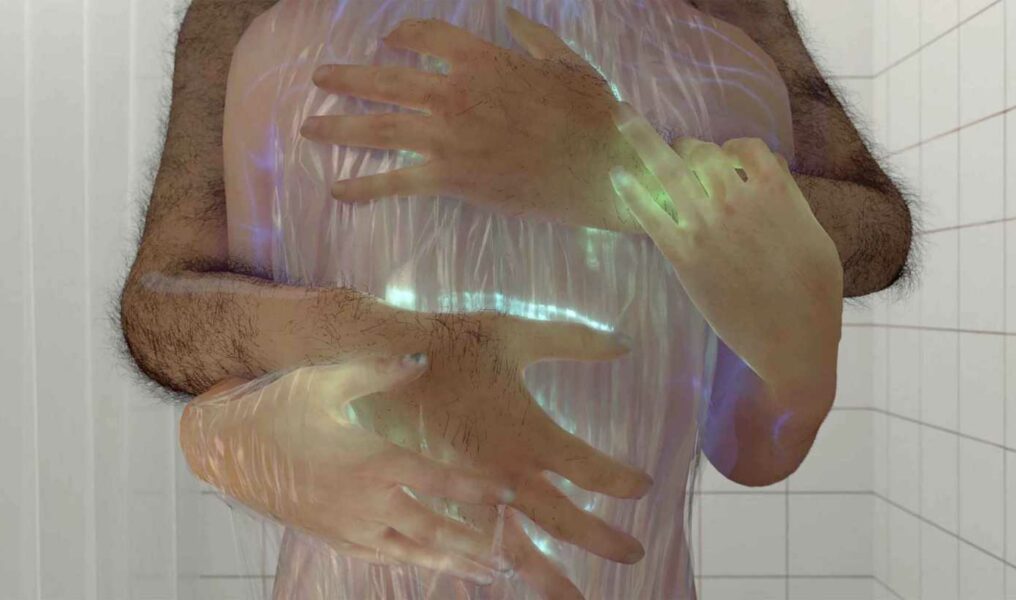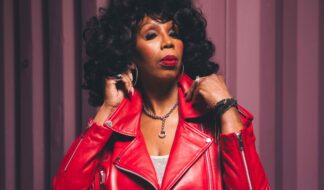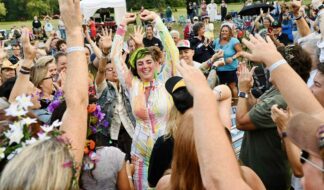The Ann Arbor Film Festival is going online March 23-28 for its 59th edition showcasing experimental works. But 2021 also marks the 20th anniversary of its LGBTQ-focused program "Out Night," coming to you virtually on March 25.
A home for the festival's queer programming since its inception (it began as "Girls Out Night" in 2001, with Between The Lines as a co-sponsor), the showcase has frequently centered experimental and nonfiction works by an increasingly broad range of queer filmmakers. In its first year, the program culminated with a screening of Barbara Hammer's "History Lessons," which sought to recover and reframe pre-Stonewall depictions of queer women. (Hammer has remained a fixture at the festival both before and since).
Now in its third year with Sean Donovan as programmer, the series continues to blend historical and political awareness with a forward-looking air. This time it does so with an inviting range of eight new queer-focused shorts all curated from a place of open affection for experimental works, which have long offered a space, according to Donovan, for queer artists to work in relative freedom outside the American mainstream.
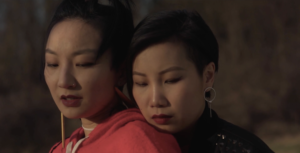
A still from "Safe Among Stars," which will screen during AAFF's Out Night.
"The work of queer creatives is absolutely foundational to experimental filmmaking in an American context," Donovan tells Between The Lines. "I think the first experimental filmmaker whose work I really fell in love with was Kenneth Anger, and it's because I was looking for examples of queer artistry in history — before Stonewall, when people held this myth of a completely closeted past." Noting Anger's ability to shape avant-garde filmmaking in the '40s and '50s, he described Anger's work as "decidedly and importantly queer."
While privileging the best slate possible in programming, Donovan cited the relatively "comfortable" and prominent position of queer male filmmakers — many of whom, including Gus Van Sant and Anger himself, have been featured during Out Night and AAFF over the years — as an added driver in showcasing a wide range of voices and styles in the program.
"I've always been mindful of the idea of having a selection of Out Night films as diverse as the LGBTQ community, while at the same time paying attention to what the existing power structures in experimental filmmaking are," he says. "So I can highlight stuff that seems genuinely new, genuinely pathbreaking in different ways."
He specifically points to the prevalence of trans-focused shorts in this year's Out Night slate, as well as the inaugural edition of "Object Lesson," a new shorts program explicitly dedicated to works by trans filmmakers, as signs that both submissions and selections are changing. That goes not just for filmmakers and subjects featured but also for the tone of works submitted.
"I used to work for an LGBTQ-specific film festival back when I lived in Washington, D.C. called Reel Affirmations. And this is a long time ago now," recalls Donovan. "For whatever reason, back in 2015, 2014, all the submissions really were about pain and sadness and really accepting negative emotions, and focusing on those moments of violence and sadness. I definitely think, now — and maybe it's just because these are experimental or avant-garde filmmakers who are fanciful by nature — there is a collective will to create queer spaces through the powers of filmmaking and cinema that feel safer, that feel more affirming, and that feel queerer."
While keenly aware of the hardships often embodied in queer experience, this year's Out Night selections, which feature robots performing in drag revues, sunlit LA bike rides and hopeful visions of better futures, mark a decided contrast to the fest's lone queer feature-length selection.
"Instructions for Survival," Yana Ugrekhelidze's politically sharp and narratively lean nonfiction film, features a trans man, Alexandre, living under a kind of deep cover before fleeing his native Georgia (a distinctly queer-phobic environment) with his wife, who agrees to become a surrogate mother to raise money for the move. Less dour than it sounds, the film's arc evokes shades of Maggie Nelson's perpetually musing "Argonauts," drawing out shared transformative currents between pregancy and trans identity in terms of medical and social experience. Even so, the aura of Out Night's programming this year seems broadly optimistic by comparison, even utopian:
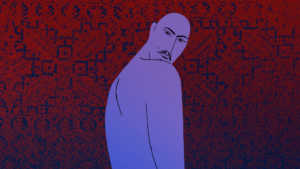
A still from "Tamou" by Tom Prezman and Tzor Edery.
"This particular collection is more fanciful, more devoted to a utopian imaginary of what queer could look like — or what what kinds of queer intimacies people can find in their lives," says Donovan. "Watching all of these, it feels almost like a reaction to the very grim year that we've had in this country and around the world in a rather universal way, but certainly in ways that touch on LGBTQ lives specifically."
For Donovan, themes of "imagining what a queer recovery looks like" prevailed among the often diaristically narrated and intimate selections, something he appreciated as both a programmer and a viewer.
"For me, I live alone; I've definitely had the strange kind of pandemic experience of wondering what to do most days." he said. "In a year that has been so isolating, that has people sectioned off in their own homes and missing a lot of the larger sources of queer community that people might be used to, watching these films, for me, was a reminder of queer community that does exist, even if it's abstract and nebulous and not something physically here next to you."
The selection of shorts, like experimental filmmaking generally, offers what Donovan frames as a welcome path from the kinds of conversations and ideas circulated (and recirculated) surrounding more mainstream films, and even in mainstream culture more broadly. This road, he suggests, offers rich new ways of understanding queer identity, aesthetics and experience.
"Experimental film's incredibly vital as a way out of tired and familiar debates about what constitutes LGBTQ representation. That kind of paradigm rarely applies very well to these kind of experimental films, which are finding entirely new filmic languages to try and translate what the queer experience is," says Donovan. "And I think that kind of imagination — and willingness — to work outside of established forms is incredibly necessary to kind of revitalizing queer culture, making things more exciting."
Passes for the 59th AAFF are now on sale and include access to all the festival's programming including over 100 films in competition, juror programs, special programs, salons, expanded cinema performances as well as Q&As with the filmmakers. Tickets for each event will be available as a sliding scale with a suggested price of $12 and a minimum of $2 per ticket (the $2 minimum covers platform fees).
